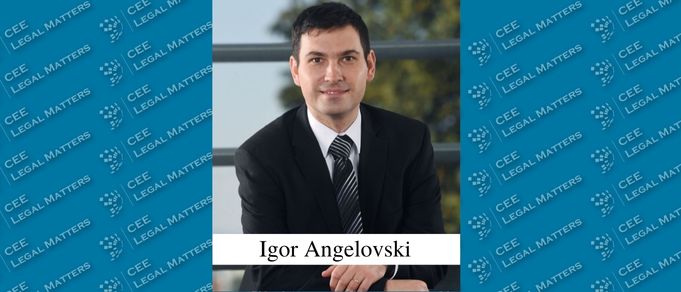The new government, looking to implement sweeping tax reform, introduce more socially oriented policies, and reorganize the country’s energy framework, is keeping Slovenian lawyers talking, along with the steady stream of M&A and financing mandates, according to Partner Igor Angelovski of Ketler & Partners, a member of Karanovic.
"The most crucial update in Slovenia is related to a recent change of government, with more left-leaning political parties coming into power," Angelovski begins. "This includes the new prime minister – previously the CEO of GEN-I, one of the largest energy companies in Slovenia. The new government is now looking into old legislative measures and announcing some reforms to implement more social policies."
"One of the most important aspects is the upcoming tax reform," Angelovski says. "So far, only minor changes have been implemented, however, the government plans to increase taxes, including imposing higher taxes on capital and high-income taxpayers. In addition, the government intends to annul the previous tax changes, which were set to decrease taxes." Angelovski adds that "this might make Slovenia less attractive to foreign investors or businesses. But we will need to wait for proposals before jumping to any conclusions."
Additionally, Angelovski notes that the government plans to have more restrictive policies with regard to privatization. "For that reason, we expect less M&A activity with businesses owned by the Slovenian government," he says. "We also expect changes to the management of those government companies."
Angelovski highlights that some positive developments are also expected. "Considering his background, the new prime minister announced that he would like to encourage investments in the renewable energy sector and reorganize energy policy," Angelovski explains. "We expect more investments in the energy field, including in large-scale solar power plant projects. The new government will likely aim to attract foreign capital and there will be some movements in that direction."
"Further, even with the introduced measures and general economic uncertainty, there is an active M&A sector in Slovenia," Angelovski notes, adding that there is a high appetite among foreign companies in terms of local acquisitions. "The increasing prices and geopolitical situation have hit some construction companies, yet there is an appetite for mezzanine finance to bridge the liquidity gap. If inflation goes up, and other negative economic trends would start to apply, some businesses are likely to fail and face restructuring processes. Still, we are quite prepared for this, since we, at least from the legal point of view, faced something similar during Slovenia's acute financial crisis in 2014, and we learned how to circumvent it." On a brighter note, Angelovski says "the healthcare and agriculture sectors are doing well in Slovenia," noting that "we also have a lot of innovative companies, readby to be invested in by the VC market."
Angelovski also highlights the challenges faced by the Slovenian market. "Some business entities, especially some manufacturing suppliers, on the other hand, are susceptible to the European markets," he points out. "In addition, real estate prices at the moment are increasing massively, and the market could be shaken – this might spell trouble for some. In general, we are an export-oriented country and what happens in Europe influences us a lot." Finally, Angelovski says, "from agriculture and farming to the legal profession itself, there is a significant shortage of employees, especially for low-paying positions, but felt across the board. This is something that all our clients are concerned about."
















